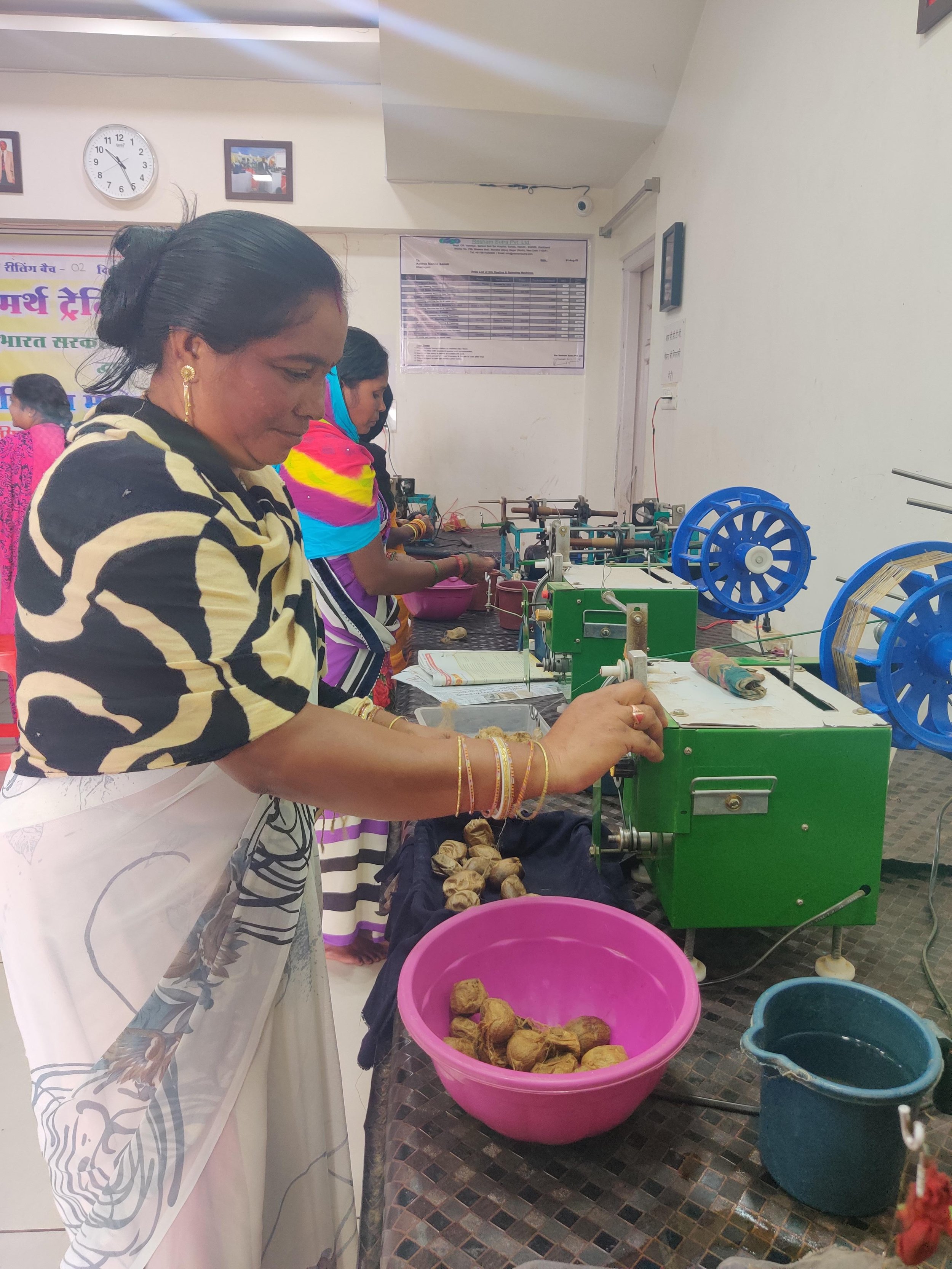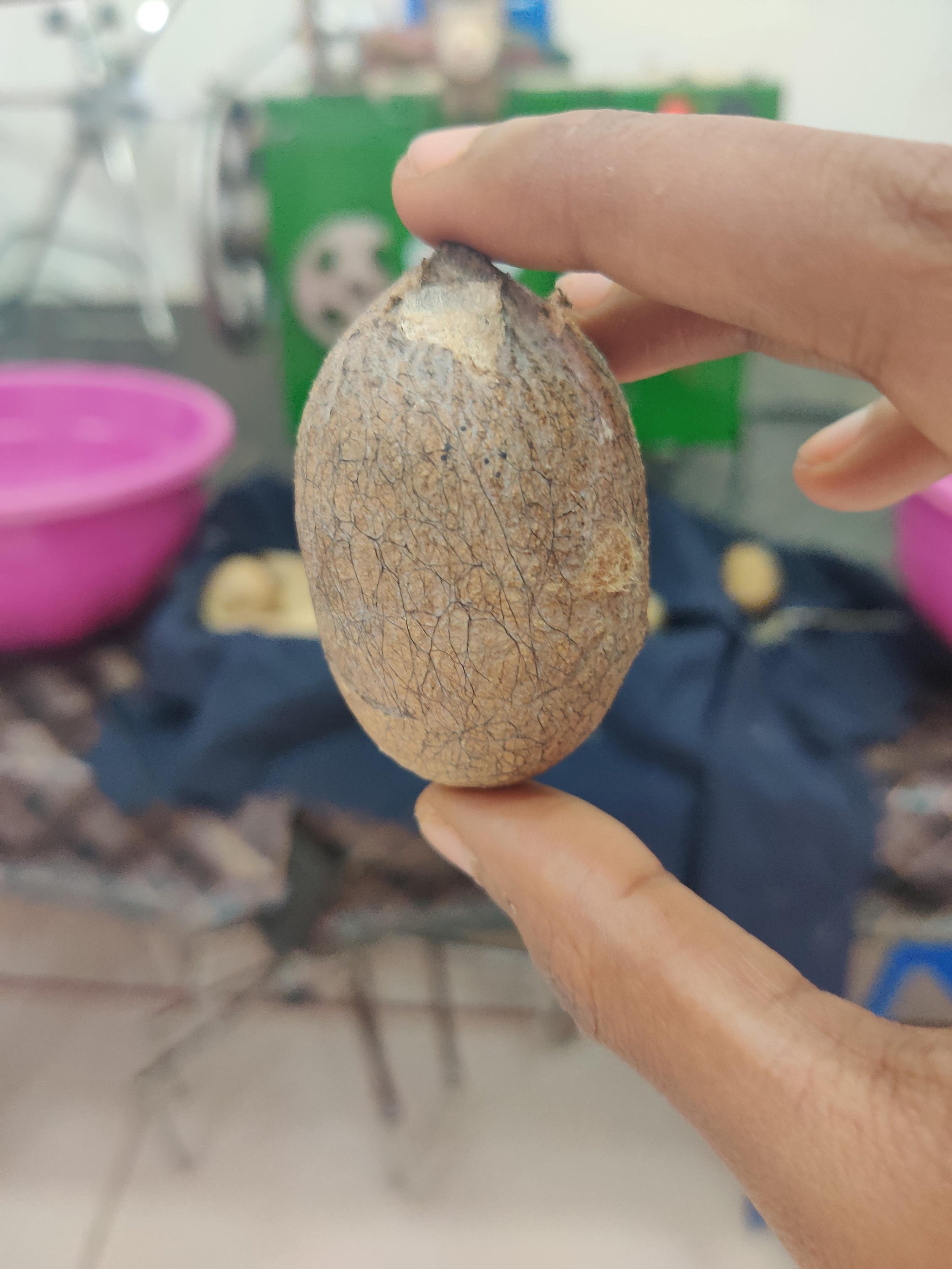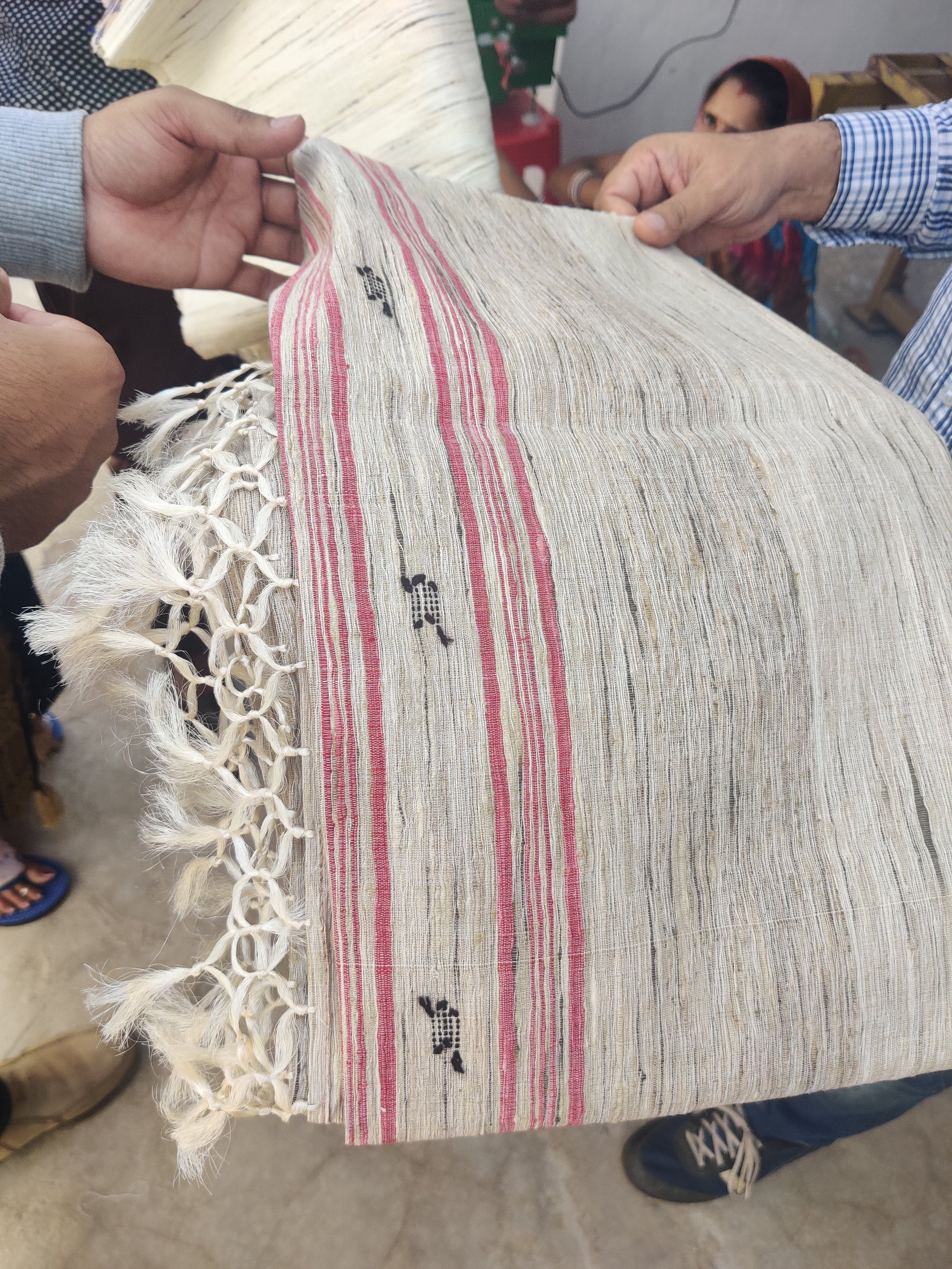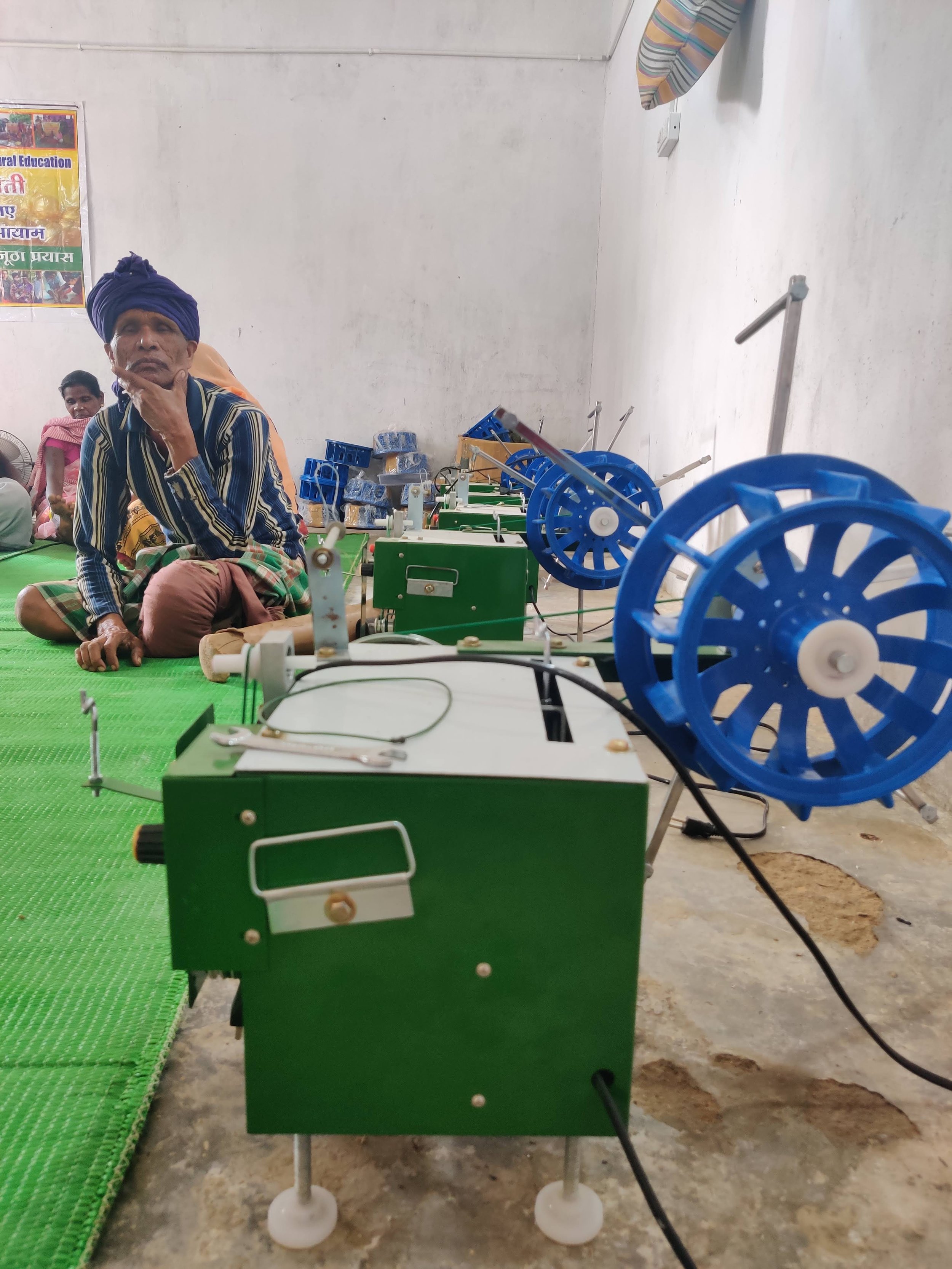A B Chakra
How can dignified jobs build resilience for the extreme poor who are more greatly impacted by climate change?
Globally, research has shown that the extreme poor are greatly affected by the cause and effects of climate change. Air, water, and other sources of pollution are often the causes of climate change while extreme weather events such as heatwaves, drought, floods and hurricanes are the effects – both of which wreak havoc in the lives of the poor, often posing a threat to their livelihoods, health, and infrastructure. The poor are especially vulnerable as they lack coping mechanisms which are neither accessible nor affordable.
Take agriculture for example. Most livelihoods on which the rural poor are dependent on such as farming, forestry, and fisheries are under direct threat from climate change. In recent times, a large section of small and marginal farmers in India have lost their standing crops and their investments to extreme weather events. Hailstorms in Jharkhand, Madhya Pradesh in Jan 2022, or unusually heavy rains in Kerala in Sep 2021 are examples of this. This is especially an acute problem in emerging economies like India, where 85% of small and marginal farmers contribute to more than 60% of the food production. As the climate risk increases in farming and allied sectors, food production and supply chains become vulnerable to shocks, potentially leading to inflation which would be detrimental to the economy.
On the other hand, when cities like Gurgaon, Chennai, and Mumbai get inundated due to floods, it is the urban poor who are affected the most. Their informal settlements become uninhabitable overnight. Over time, such events are getting more pronounced- both in their frequency of occurring and in their intensity. Pew Research Center, using World Bank data, has estimated that there are 134 million people in India with an income of $2 per day or less in purchasing power parity. They are at the highest risk of the cause and effects of climate change.
Apart from the loss of earnings, it also leads to food insecurity, displacement, malnutrition (in children), and many health threats/ailments. This puts a greater significance on creating more dignified jobs at a rapid pace that would enhance their purchasing power and equip them with tools to be more resilient. At the same time, these jobs should be created while keeping sustainability in mind. .
In India and across the globe, public and private investments in environmental sustainability is on the rise. As a result, a lot of new-age innovations are taking place in renewable energy, transportation, and infrastructure (green building). Many enterprises are building double bottom line businesses - those that focus on both profit and planet. Right now is the perfect opportunity for entrepreneurs to innovate and create triple bottom line businesses focusing on people, planet, and profit.
Some of the sectors that can deliver on the triple bottom line businesses are agriculture and allied sectors, waste management (aka “circular economy”), sustainable fashion, and rural manufacturing.
For example, waste management as a sector is fraught with casual labor, poor working conditions, and a lack of safety for underserved communities. Companies like Sahaas, Hasirudala, and GreenWorms are changing it by providing formal employment with adequate safety measures while also converting waste to value. This has helped many poor households to move out of poverty through a stable income.
Similarly, in farming, small and marginal farmers do not have access to climate-resilient farming practices which often leaves them in a vulnerable position. Companies like Bharat Rohan through their drone-based advisory and market linkage services are ensuring that small and marginal farmers can grow the right crop at the right time and apply the right inputs depending on the micro-climatic weather conditions on their farm. This has helped in an increase in yield and increase in income thereby making farming profitable.
Silk reeling is laden with hard labor for the producers (“thigh reeling practice” which leads to severe health ailments). Companies like Resham Sutra through their solar-powered reeling and spinning machines are replacing these practices and increasing the productivity of the silk producers. This has helped the job holders by not only reducing the drudgery of reeling but also in growing their income through higher productivity and reduced costs (not being dependent on inconsistent grid supply).
Companies like Tamul Plates which produce dinnerware products from areca leaves is an example of how rural manufacturing can help create dignified green jobs. Tamul Plates collects areca leaf sheaths (which are otherwise thrown away) from farmers. They mobilize and train rural producers to manufacture sustainable dinnerware products with it. This is an alternative to styrofoam plates, known to be heavy polluters. In this process, the enterprise creates stable and sustainable jobs for poor households engaged in manufacturing while also contributing positively to the environment through the products.
These are some of the ways in which a dignified job could help build resilience against climate change for the extreme poor who are disproportionately affected by this crisis.
Upaya is dedicated to supporting enterprises that build sustainability into their business model. Currently, more than a third of Upaya’s portfolio is working on triple bottom line businesses. As we ramp up, we will support more enterprises and entrepreneurs who innovate around this theme.
We are approaching the 52nd year of Earth Day shortly. Earth Day began as a movement in 1970 and has now had the participation of more than a billion people across 193 countries. Some of the efforts in green movements and initiatives have given way to industries that have positively impacted the environment. With that spirit, it is time to create more dignified green jobs!








